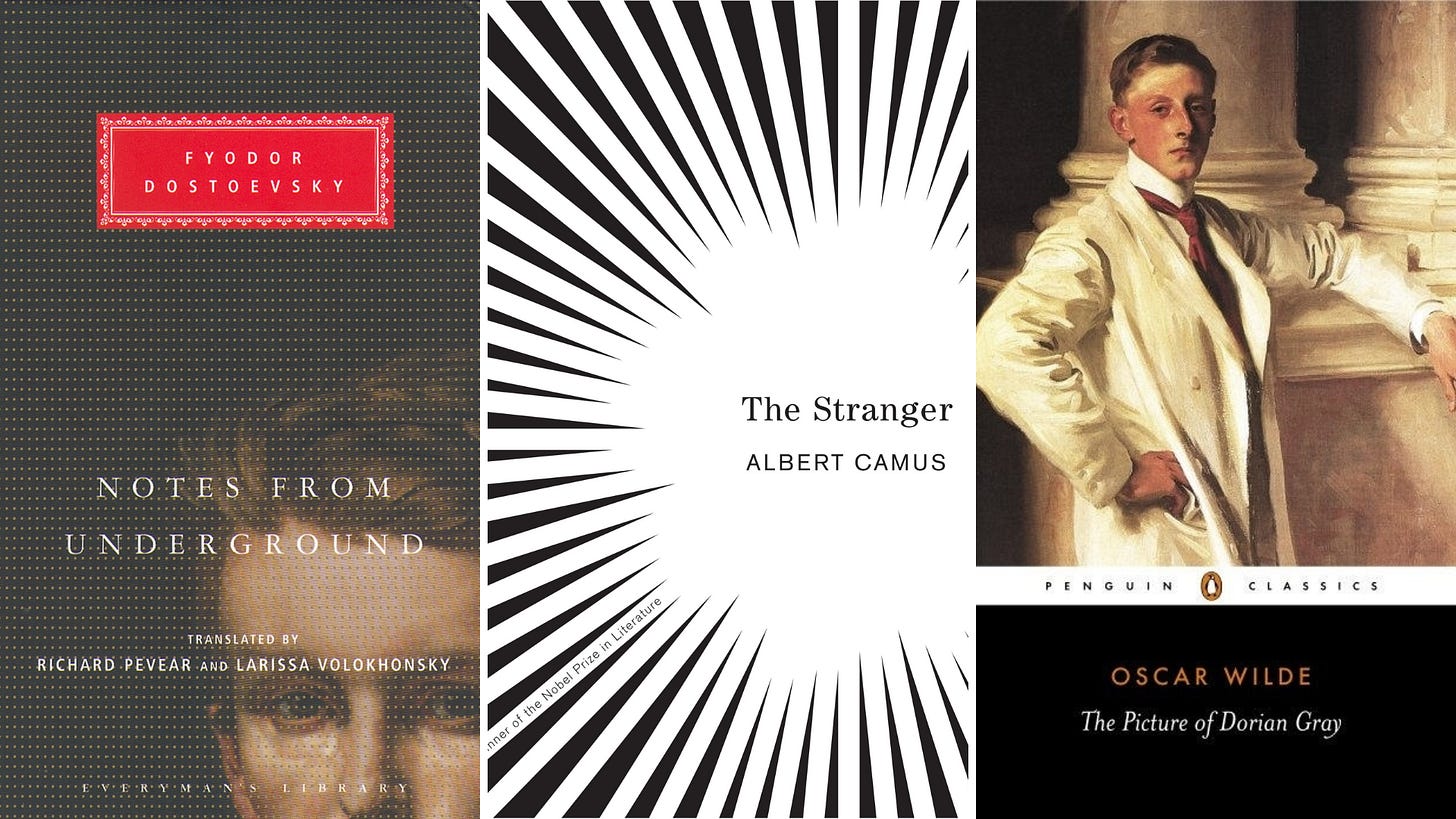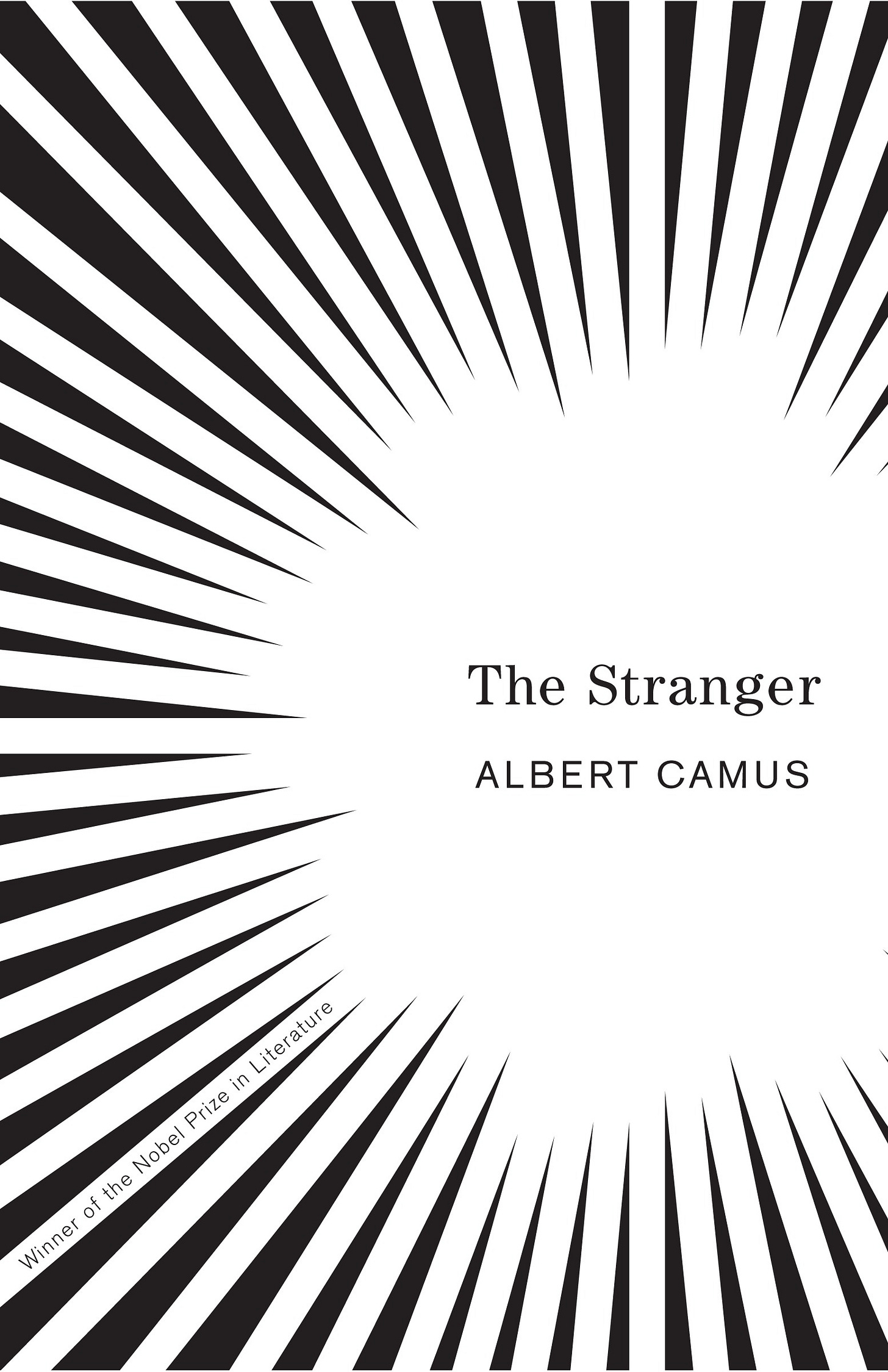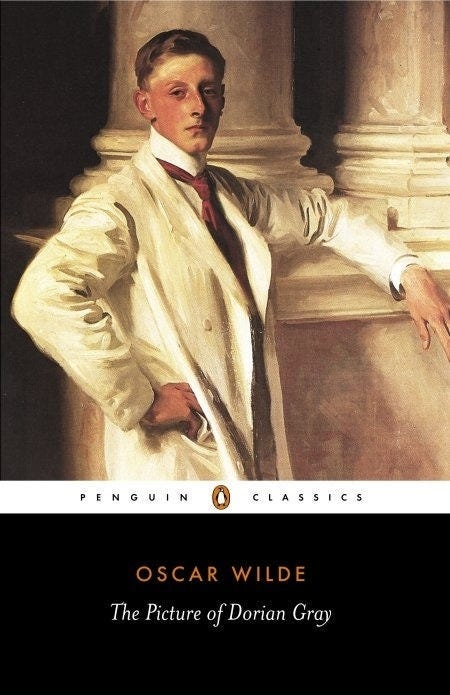This is the final essay in the series. Here are the previous essays in the series:
I hope you’ve enjoyed this series. Stay tuned for more series, and enjoy dessert.
I have found that the most enduring stories are not about heroes, nor even about villains, but about men who exist in the murkier in-between; men whose actions defy categorisation, whose presence in literature unsettles as much as it seduces. These are men who smoke cigarettes with a fatalist’s resolve and apathetic attitude, who gaze at their reflections and ask not who they are, but why it matters. In writing about them, one quickly abandons the desire for moral clarity. It is not so much that they blur the line between good and evil; it is that they make the line seem irrelevant. There is a kind of madness, unflinching honesty, in watching the world without flinching. I am thinking of Meursault, Dorian Gray, and the Underground Man. I am thinking of how their apathy, hedonism, and self-loathing reflect a different register of disillusionment. They are not heroes, but they are not quite monsters. They embody the raw reality.
This is not an attempt to romanticise cruelty, though that temptation, like the temptation of Dorian’s unageing beauty, is real. Rather, it is an invitation to sit with the discomfort, to trace the way a soul corrodes under the pressure of its own gaze. In The Stranger, Meursault’s moral indifference is not a mask but a mirror; he kills not out of malice, but out of a sunlit, meaningless detachment. In The Picture of Dorian Gray, Wilde conjures a man who embraces aestheticism at the expense of ethics, asking what happens when the soul is treated as an expendable ornament. And in Notes from Underground, Dostoevsky gives us a narrator so bitterly self-aware that he weaponises his own insignificance. These men do not seek redemption because they do not believe in it. They are morally grey, not in the trendy, Tumblr way, but in the ancient, existential way, in the sense that the world offers no final judgement and no catharsis.
The Stranger by Albert Camus follows Meursault, an emotionally detached French Algerian who lives with indifference toward social norms and moral expectations. After attending his mother’s funeral with no visible grief, he drifts through life with passive acceptance, entering a casual relationship and aiding a neighbour in morally questionable actions. One day, under the blinding sun on a beach, he kills an Arab man without a clear motive. Arrested and put on trial, Meursault is judged more for his emotional detachment than for the crime itself. Condemned to execution, he ultimately confronts the absurdity of life and accepts the universe’s indifference.
There is a particular chill to The Stranger, a kind of existential draft that seeps in not through what is said, but through what is not. Meursault is not a villain in the conventional sense; he is not sadistic, not calculating, not especially angry. He is not driven by ideology or revenge or even the thrill of rebellion. Instead, he exists in a moral vacuum, a man who does not lie but also does not love, who does not pretend to care and therefore, in the eyes of the world, must be punished. His refusal to play the role society demands seals his fate. He does not weep at his mother’s funeral. He does not feign grief or passion or guilt. He does not speak the language of morality because he does not believe in its grammar. Meursault is not evil; he is merely detached, stripped of illusion. In this detachment, Camus confronts us with a question not of justice, but of meaning: is a man bad simply because he does not pretend to be good?
To call Meursault morally grey is perhaps both too much and too little. Grey implies a blending, a mixture of impulses. But Meursault is not a blend; he is a blankness. He does not struggle between right and wrong, he does not see the distinction as relevant. This is the radical horror of Camus’ novel: not that Meursault commits a murder, but that the murder appears to him as an afterthought, the inevitable result of heat, sun, sweat, and silence. And yet, this is also what makes him disturbingly human. Who among us has not felt the tug of absurdity, the weightlessness of moments that should feel significant but do not? Who has not looked at the social rituals of grief, love, and justice, and wondered if we are all simply playing along? Meursault’s refusal to pretend makes him alien, but it also makes him honest in a way that is almost too painful to look at. Meursault disregards many hidden rules and myths that we live by.
Notes from Underground by Fyodor Dostoevsky is a psychological novella narrated by an unnamed, isolated former civil servant who has retreated from society into a state of bitter introspection. Divided into two parts, the first is a psychological monologue where the narrator rails against rationalism, free will, and the illusion of human progress, exposing the contradictions of his own thoughts. The second part recounts episodes from his past: encounters with old schoolmates and a young prostitute named Liza, where his need for control, spite, and self-sabotage push others away and deepen his own misery. The novel explores the fragile human need to feel significant.
There is a man who lives not in the world but against it, a man who resents not just others but himself, and who sharpens that resentment until it becomes the only language he knows. Dostoevsky’s Notes from Underground introduces us to such a man, a narrator so riddled with self-consciousness that he implodes rather than explodes. He is not a villain in the traditional sense; he does not conquer, kill, or command. But he wounds slowly and methodically, by weaponising his own failure. He is petty, vindictive, brilliant and cruel, not out of power but out of a deep, festering awareness of his own impotence. In this way, he is terrifyingly human. The Underground Man embodies the idea that unchecked introspection can rot the soul. He does not seek forgiveness or redemption; he seeks only to assert that he exists, even if that existence is defined by spite. He is obsessed with his place in a world that barely notices him.
The Underground Man is trapped in a feedback loop of his own making. He is aware of right and wrong, but he also questions whether those categories have any real authority. His internal monologue is filled with contradictions: he both craves attention and loathes it, wants love but scorns the possibility of intimacy, and desires dignity while wallowing in degradation. He is not born with inherent evil but of a desperate need to prove that he has the agency to hurt, to matter. He is not a sociopath, nor is he a tragic hero; he is a man who collapsed inward under the burden of his own intellect. Dostoevsky does not ask us to forgive him, but he does demand that we see him as a warning. The Underground Man is a mirror held up to the kind of loneliness that turns inward, to the kind of overthinking that devours empathy.
The Picture of Dorian Gray by Oscar Wilde tells the story of a young, handsome man named Dorian Gray who, under the influence of the hedonistic Lord Henry, wishes that a portrait painted of him would bear the marks of age and sin while he remains eternally youthful. His wish is mysteriously granted, and as Dorian indulges in a life of excess, cruelty, and moral corruption, the portrait grows increasingly hideous, reflecting the degradation of his soul. Though Dorian initially delights in his ageless beauty and freedom from consequence, he becomes tormented by guilt and the grotesque image hidden away in his home. Ultimately, in a desperate attempt to rid himself of his conscience, he makes his journey to destroy the portrait, only to be found dead, aged and disfigured, his sins finally claiming his body as well as his soul.
There is something uniquely haunting about a man who sins beautifully. In The Picture of Dorian Gray, Oscar Wilde presents us with a character who is less a man than an idea made flesh, a body who begins innocent but quickly learns the intoxicating power of aesthetics, charm, and a face untouched by consequence. Dorian is not evil in the way that villains are evil; his descent is slow, seductive, and largely reactive. He begins as clay shaped by others, most notably by Lord Henry, whose philosophy of indulgence without remorse opens Dorian to the allure of a life untethered from moral restraint. But Dorian’s choice to embrace this philosophy, to trade his soul for eternal youth and beauty, defines him. His portrait becomes the repository of his guilt, ageing and withering in his place, while he remains flawless. What makes Dorian morally grey is not just his crimes, but that he perceives himself as somehow outside of morality.
Dorian’s journey is a study in selfishness, of how easily one can fall in love with reflection and let the soul decay behind the mask. He lies, manipulates, and ruins lives, yet he is never entirely monstrous. Wilde does not present him as a one-dimensional villain, but as someone whose tragedy lies in his awareness. Dorian often feels the weight of his choices, despises the changes he sees in himself, but continues on the same path, as if paralysed by his myth. He is caught between regret and desire, vanity and guilt, always haunted but never quite moved to transformation. In this way, he is achingly human. Dorian Gray does not murder for pleasure nor destroy for power, he simply cannot stop feeding the illusion that beauty excuses everything. The most dangerous men are those convinced there is no darkness within themselves.
“Human nature is not black and white but black and grey.” — Graham Greene









I love The Stranger ❤️ I feel like that book is more timely now than ever before, as is your essay
Lovely essay! I am going to read the other essays you wrote in this series. <3
The Stranger and The Picture of Dorian Gray were my favorites in high school. I've been meaning to reread them now that I am in my 30s. I recently purchased Notes from Underground. I am even more excited to read it now after reading this!